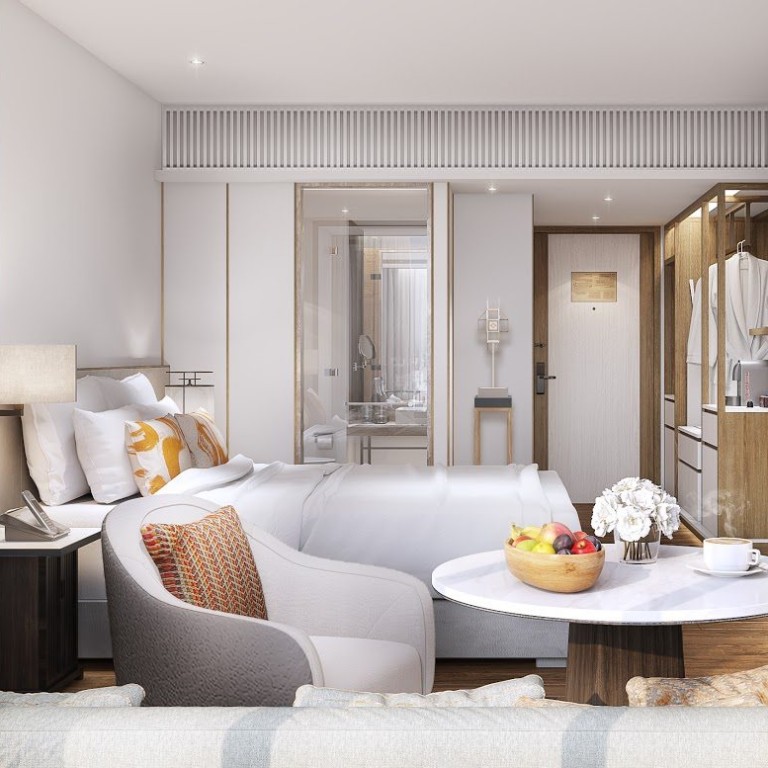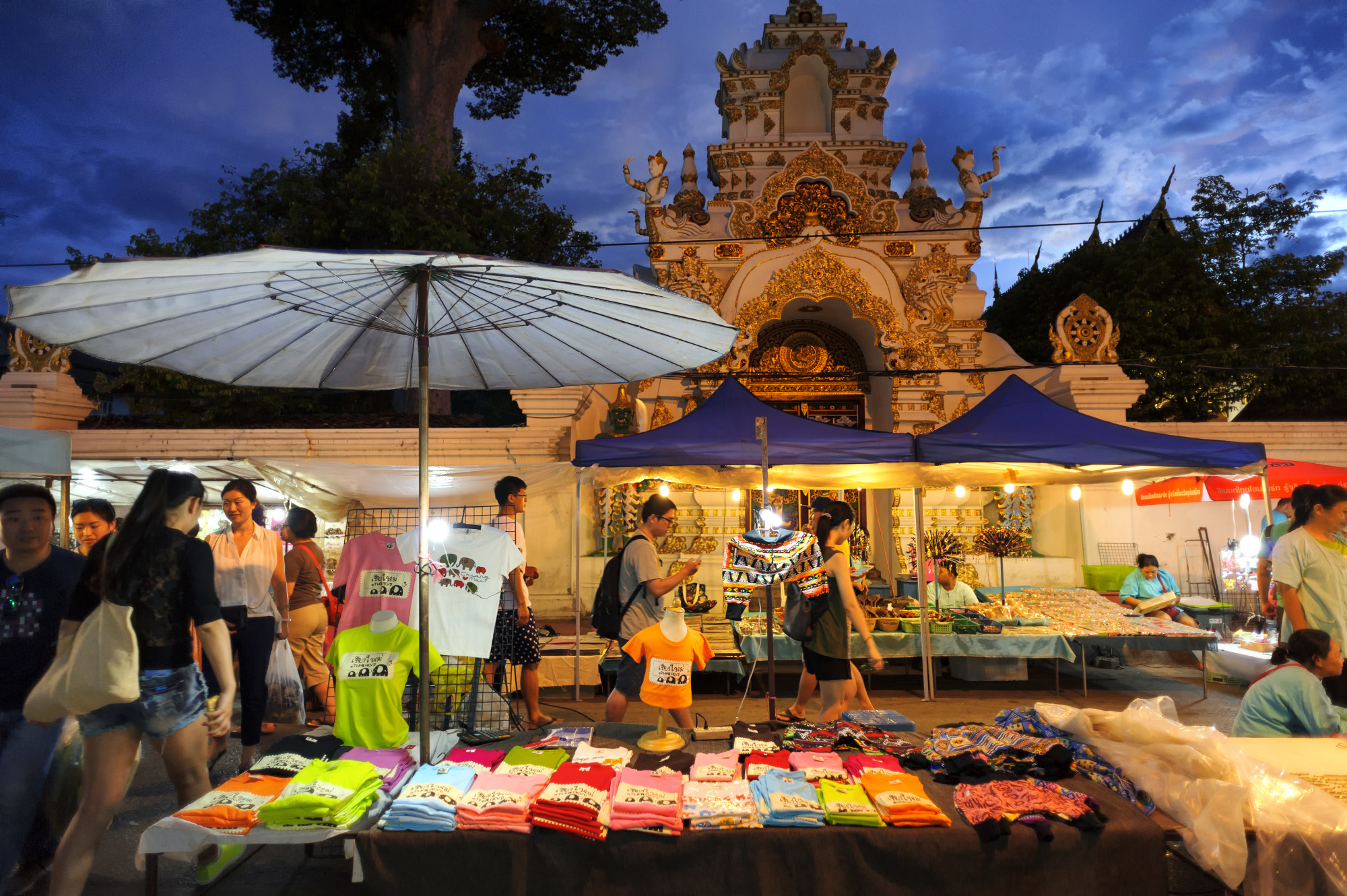
New five-star hotel in Chiang Mai, Thailand, first since pandemic began, to be opened by Spanish chain Melia
- ‘We are going to have a very joyful and memorable pre-opening time,’ says one employee, as launch brings relief to beleaguered tourism industry
- Hotel will open in the fourth quarter in central Chiang Mai, close to attractions such as the old city walls and moat, markets and art galleries
Occupancy in 40 Chiang Mai hotels surveyed by the Northern Chapter of the Thai Hotels Association has been less than 10 per cent throughout 2021, according to its president, La-iad Bungsrithong, and more than 70 per cent of people in tourism-related businesses have lost their jobs since the pandemic began.
It is perhaps surprising, then, that five-star Spanish hotel chain Melia plans to open in Chiang Mai’s city centre in the fourth quarter of this year.
The 260-room Melia Chiang Mai occupies the building that once housed the Pornping Tower hotel, between the Ping River and the Night Bazaar, and close to attractions such as the old city walls and moat, markets, art galleries and riverside restaurants. Its opening follows that of Melia’s first property in Thailand, on Koh Samui, in January 2020, where suites fashioned from refurbished teak barges are a key feature.

The new hotel’s general manager is Edward Snoeks, a Dutchman who has worked in hospitality management in Asia for more than 20 years.
“Building a new hotel during the pandemic has presented some problems,” says Snoeks, “as we have faced some delays with the shipment of construction materials and supplies from overseas. Other than that, we have not had many problems, as staff are readily available and people are keen to be part of something exciting happening at the moment.”
Where to go after Covid-19: new hotels in Thailand, Vietnam and Australia
He will, when they have all been recruited, head a team of 150 in Chiang Mai, 99 per cent of whom will be Thai. The opening presents a rare opportunity for locals working in the ailing hospitality industry.
“Last year I worked in Phuket,” says Chutima Banmu, Snoeks’ personal assistant, “and our hotel was closed for three months. Then we had to work from home with whatever system and tools we could find. Now we have to be very careful with our savings, and my family’s hoped-for house extension is on hold.”
Chutima was recruited by Melia while she was in Phuket and jumped at the chance to work in Chiang Mai.

“Of course, there is no place like home and finally I’m home with my family. And with the Melia Chiang Mai team, honestly, I have met a few familiar faces and I would say we are like-minded; we are going to have a very joyful and memorable pre-opening time. And I’m optimistic that when the Melia opens, nearby shops and cafes will benefit, not only from our guests but from our staff as well.”
Similar optimism is displayed by Sirinun Chantharakul, director of human resources, who had been working a few blocks away, at Chiang Mai’s Le Meridien hotel.
“Last year, I had to take a cut in salary, but now the Melia has given me the chance to advance my career. As for local businesses, I believe the Night Bazaar will be reborn when we open,” he says.

Once Chiang Mai’s top evening attraction, the Night Bazaar – two large buildings full of usually bustling souvenir shops, as well as hundreds of clothes stalls on each side of the street outside – has been virtually silenced by the lack of tourists.
The Melia Chiang Mai is housed in a 22-storey tower and a podium building. The facilities include two restaurants, the YHI Spa, a fitness centre, a swimming pool and, the pièce de résistance, two rooftop bars connected by a glass bridge.
Guests arriving at the hotel will find the protocols under the “Stay safe with Melia” programme are similar to precautions found elsewhere. Snoeks says: “I believe the ‘new normal’ is here to stay. For example, the temperature readers on arrival will be permanent installations rather than temporary features.”

Thailand has been subject to a first, second and third wave of Covid-19 infections, although, until now, Chiang Mai has escaped the virus comparatively well. A recent surge in cases nationwide does not bode well, however.
A delayed vaccine roll-out began in June and tourism-related businesses are hoping that enough locals will be inoculated by October to encourage international visitors to return, even though a shortage of vaccines is making that look unlikely.
Welcome to the Khao Sok jungle, an adventure like no other
“The Chiang Mai sandbox/sealed route scheme is still in progress; the proposal is being prepared to submit for government approval,” says Pakkanan Winijchai, director of the Tourist Authority of Thailand in Chiang Mai. “It will not be much different to that of Phuket except that there will only be four districts [included in the scheme] – Muang [central], Mae Rim, Mae Taeng and Doi Tao.”
The Melia is in Muang, so it would benefit if the scheme was up and running by the time the hotel opens.
“It’s a really positive idea to create a sandbox in Chiang Mai, because it will provide opportunities for both tourists and service providers,” says Sukanya Phunpradit, front office manager at the Melia. “As long as people are socially responsible, I’m sure it can work, as it seems to be working in Phuket.”

